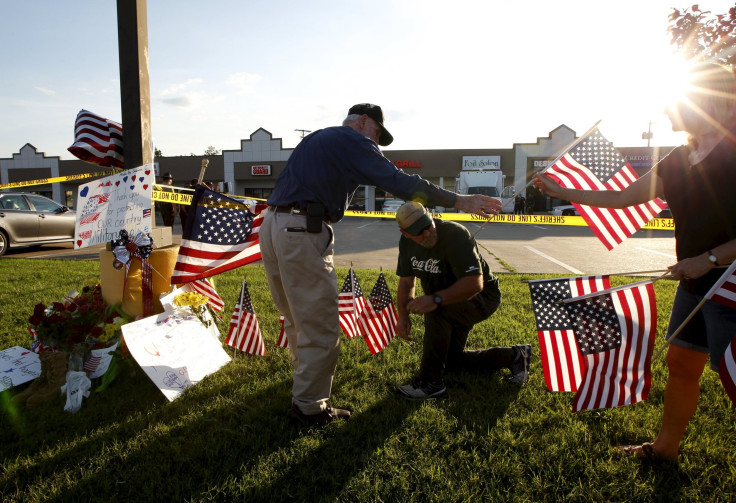Chattanooga Attack: When Does A Mass-Shooter Become A Domestic Terrorist?

When does a mass-shooter become a domestic terrorist? The manner in which perpetrators of some high-profile crimes in the U.S. have been treated, both by the media and the legal establishment, suggests that the line between the two is unclear, and possibly influenced by prejudice.
On Thursday, U.S. Attorney Bill Killian did not hesitate to describe the shootings at military sites in Chattanooga, Tennessee, which left four people dead, as “domestic terrorism.” The gunman, Muhammad Youssef Abdulazeez, who was killed by police, was a Kuwait-born naturalized U.S. citizen, who wore a beard in a style common among observant Muslim men.
In contrast, when Dylann Roof, a 21-year-old white supremacist shot and killed nine black people at a church in Charleston, South Carolina, Charleston police were quick to characterize the attack as a “hate crime,” and FBI Director James Comey was “unsure” whether the attack constituted terrorism, and the media widely characterized the attack as a mass-shooting incident.
While there is no universally accepted definition of terrorism, there is some consensus around Georgetown Prof. Bruce Hoffman's five-part definition, which describes an act or threat of violence that was politically motivated; designed to influence people beyond the immediate victims; involved an organized group; targeted civilians; and included non-state actors.
“The label of terrorism has been applied more loosely and inconsistently than many of us would like to see,” Anthony Lemieux, associate director of the Global Studies Institute and associate professor of communication at Georgia State University, told International Business Times on Thursday.
Lemieux cited the example of Frazier Glenn Miller, a white supremacist currently facing murder charges for the alleged killing of three people in a 2014 attack on a Jewish community center in Kansas.
“When Miller went into the Jewish center and shot it up and killed people. ... Had he been yelling 'Allah hu Akbar” rather than 'Heil Hitler' there is no question in my mind it would have been investigated, it would have been treated, it would have been covered differently. We would be having a very different conversation,” he told IBTimes.
This is a refrain echoed by many activists: in a column written in the aftermath of the Charleston shootings last month, University of Pennsylvania Prof. Anthea Butler lamented that black and Muslim killers were labeled as terrorists and thugs, while white shooters were often branded as mentally ill lone-wolves by politicians and the press.
News organizations, for their part, say they are reluctant to call anyone a terrorist unless officials do so first. “In general, we shy away from independently labeling people as terrorists and would factually note if someone has been listed or labeled as such by someone else, such as the FBI or another government entity,” Associated Press spokesman Paul Colford told the Washington Post.
Recent incidents may, however, have represented some kind of turning point in the national debate on this issue.
“After [the South Carolina shootings] I think for the first time, the national dialogue actually shifted,” Lemieux told IBTimes. “People said 'call this terrorism', Jon Stewart on the Daily Show came out and said 'call this terrorism'.”
© Copyright IBTimes 2024. All rights reserved.












